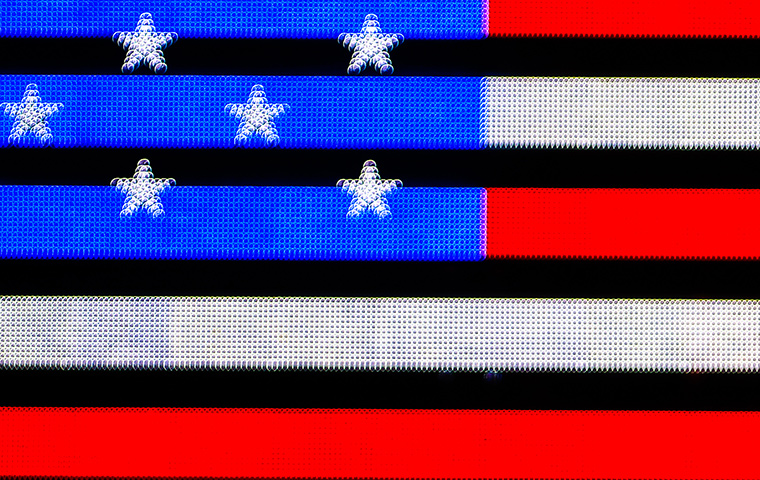
Can Technology Help Rescue Democracy?
Deborah Lohse
A series of articles in The Atlantic, spurred by two SCU educators in the Markkula Center for Applied Ethics, looks at technology’s impact on democracy.
Technology could arguably be blamed for causing, or at least accelerating, many of our democratic society’s worst ills—fake news, hacking, polarized politics, curtailment of voting rights, propaganda, short voter attention spans—the list goes on.
This spring, two Santa Clara University educators joined with The Atlantic magazine in the development of a series of articles focused on whether technology today can be used to reverse those problems—to rescue democracy.
The idea for the series stemmed from discussions in the advisory group of the Markkula Center for Applied Ethics’ Internet Ethics program, led by director Irina Raicu J.D. ’09, where questions about the ethical boundaries of technology, the Internet, and society’s use of both are regularly broached.
As the group grappled with the impact on democracy from technology-propelled problems like fake news, political polarization, or data breaches, SCU Law professor Eric Goldman suggested the idea of posing two simple but profound questions to experts who study tech from various perspectives:
“Is technology hurting democracy? And can technology help save democracy?”
They received “an overwhelming response,” Goldman and Raicu write in their opening article with Atlantic writer Adrienne LaFrance.
“Our contributors widely view 2017 as a moment of reckoning,” they write. “They are concerned with many aspects of democratic life and put a spotlight in particular on correcting institutional failures that have contributed most to inequality of access—to education, information, and voting—as well as to ideological divisiveness and the spread of misinformation.”
On May 2, the series was launched.
For one article, Santa Clara University philosophy professor Shannon Vallor wrote about how technology developers wrongly assumed that civic virtues and norms would underpin widely adopted tools like search and social media, and how, given their erosion, teaching such virtues needs to be a top priority to avoid further destabilization.
Other authors in the 30-article series cover topics including the impact of memes infiltrating real life discourse; the implications of widespread surveillance on dissent and freedom; an argument for a taxpayer-funded version of Facebook; and the limitations in the democratic system of representing people by geography, rather than the communities of interest they form on places like Facebook.
The authors want to hear from readers, too.
“We hope you’ll join the conversation by writing your own responses—Is technology hurting democracy? And can technology help save democracy?—to hello@theatlantic.com.”
The entire series of articles will also be hosted on a dedicated page of the Markkula Center website. Poised at the intersection of two of the Center’s programs (technology ethics and internet ethics), this collection will be a key addition to the Center’s current teaching materials and provide another opportunity for ongoing conversations around ethics and democracy.